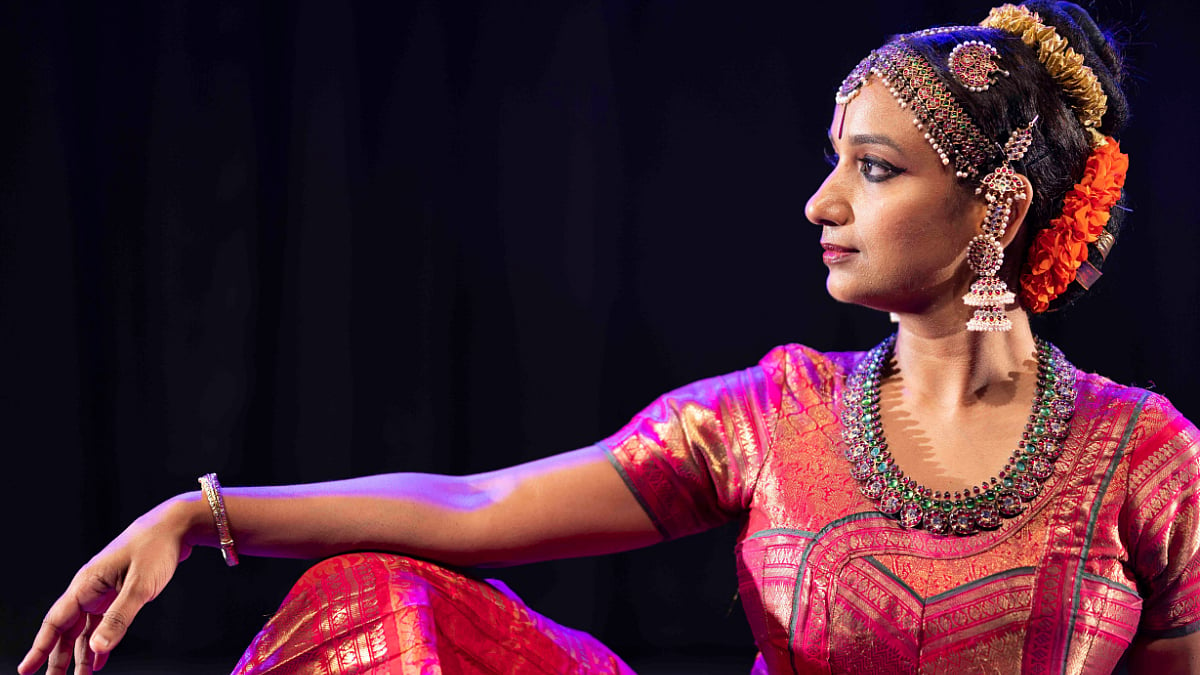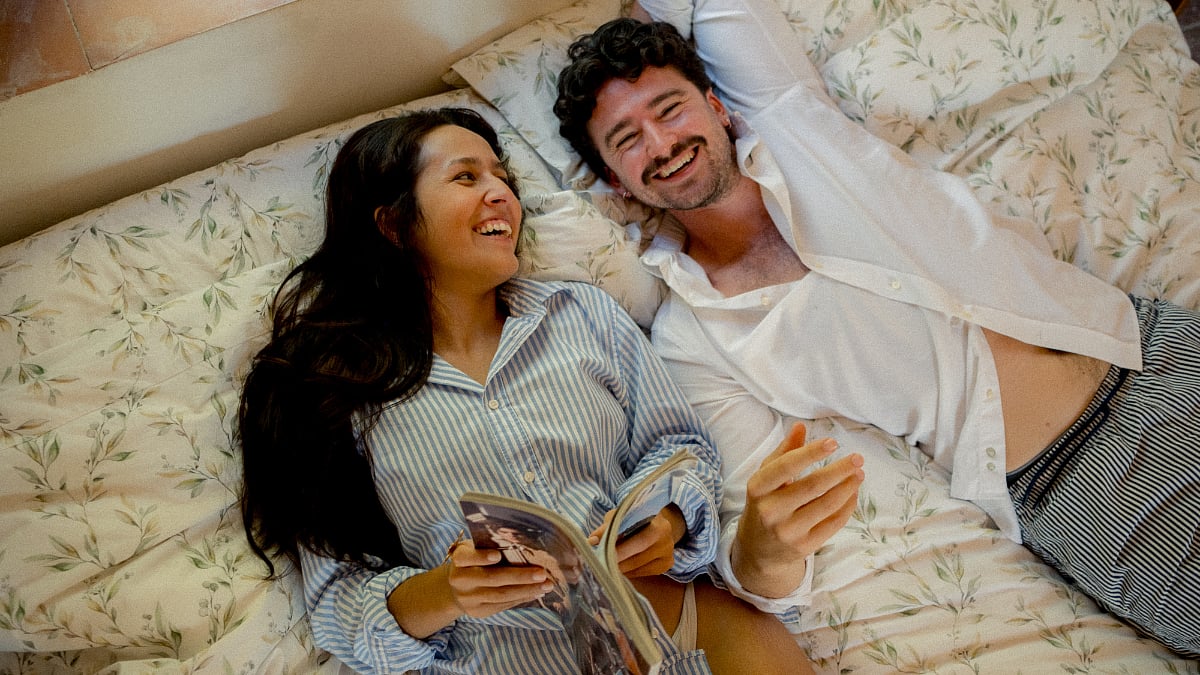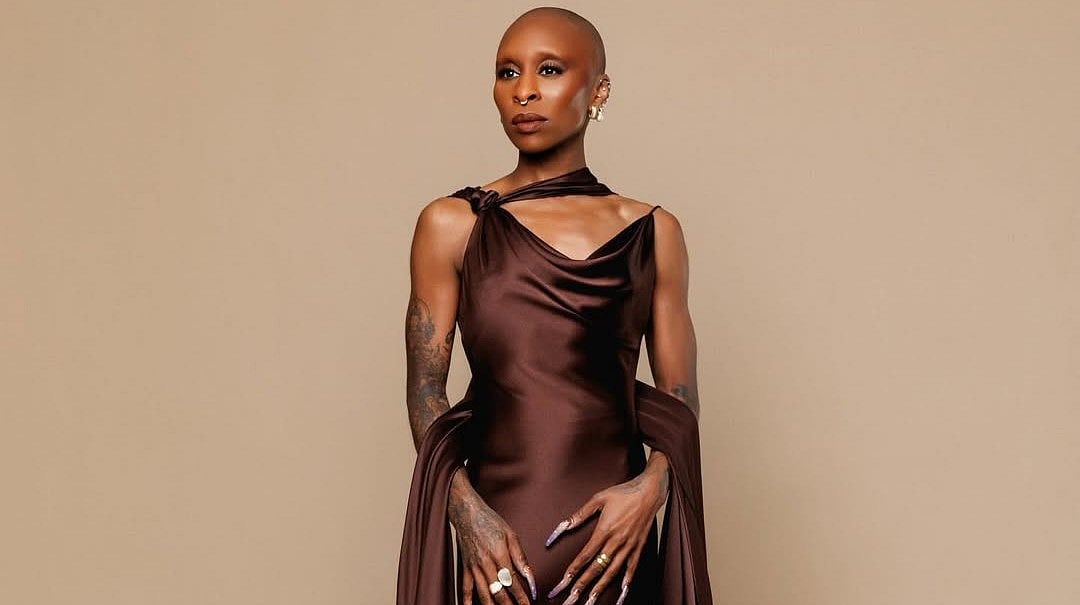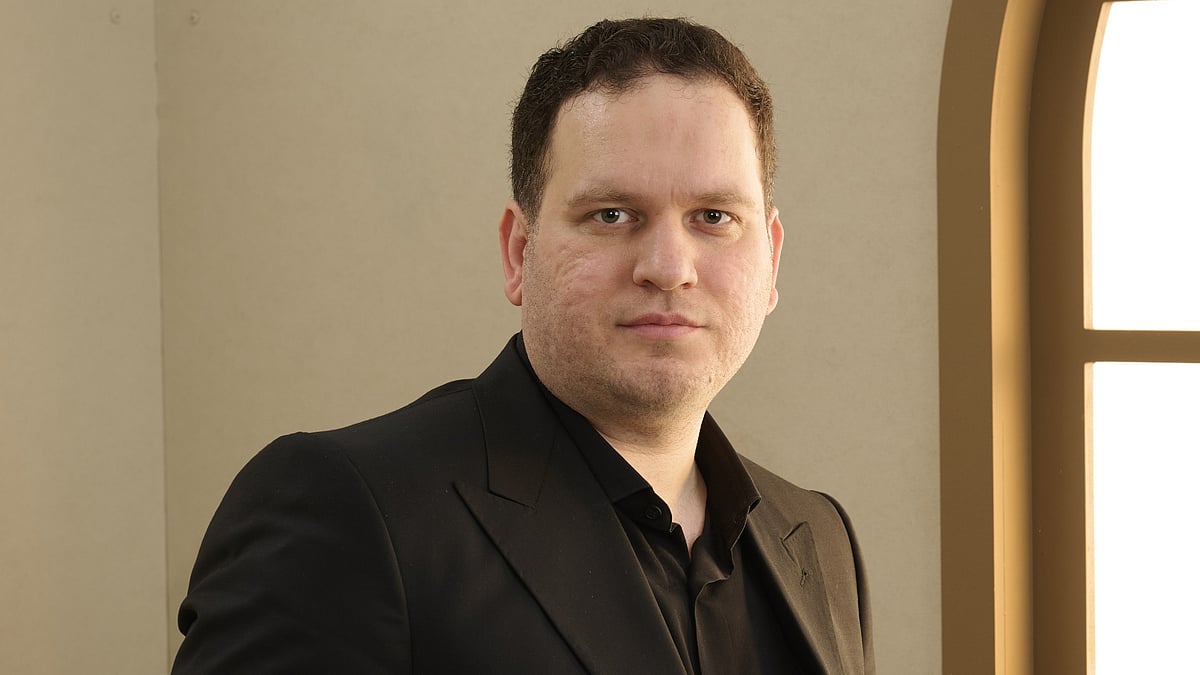Founder of Natya Tarangini, Kuchipudi dancer Yamini Reddy may be the daughter of Kuchipudi doyens Raja and Radha Reddy, but over the years, she has carved a niche for herself. The three-time National Award-winning accomplished dancer is acclaimed not only as a performer, but also as a Guru having honed many young dancers for over two decades. Yamini was recently in Mumbai for a performance at Nita Mukesh Ambani Cultural Centre, NMACC. An Evening of Storytelling, the three performances — Hindi versions of Ramayana, Dashavataram, and Rasasabdam by Oothkadu Venkata Subbaiar in Sanskrit — were helmed by her mother and guru Kaushalya Reddy on the vocal.
Excerpts from the interview
How was it growing up with legendary Kuchipudi dancers as parents?
For me, they are just parents. Growing up with my parents was the same as any other child. I didn’t feel any difference while growing up, the only difference was we used to dance a lot. But when I was a little older, people would tell me about my parents and how famous they are. I loved watching them dance. I wanted to do everything around dance. My mother didn’t expect me to take this up as a profession. There was no pressure as such from my parents. When I decided to make Kuchipudi dance my profession there was a lot of demand from other people. They wanted me to be as good as my parents from the day I went on the stage. They never realised that they are what they are because of the accumulated experience of many years and they are legendary because they have been performing for many years. That was daunting in the beginning, but now I don’t think about it anymore. I ask myself why I am in this field, is it because of my parents or because I want to be famous, as long as the answer is that I love dancing, I will be in the field.
You have been teaching Kuchipudi dance for over two decades, what are the basic qualities one needs to have as a teacher?
The thing with classical music and dance is that it becomes the duty of the guru to pass the knowledge to the disciple. As a teacher, I believe we need to imbibe the entire technique and its ways to the student from a very young age. Later, when they grow up and know the art form they can do what they want to do. Until they have mastered the grip over the dance form, it’s my duty as a teacher to make sure what they are doing is right. A teacher needs to let the students go once they learn the dance form.

You have toured across the world as a classical dancer. How has been the journey for you and how have you evolved over the years?
Dance is very closely connected to me. As we change, our personality changes, and dance changes with us. As we grow and mature through life experiences, our dance matures too. There’s more dimension to it. Life has taught me a lot. I am at a stage of life where my dance is constantly evolving. My dance has more depth now than it had in my 20s. I can bring more to the stage. My approach to life changes my approach to dance. Life and dance for me are interconnected.
Interestingly, classical dance is probably one field that was dominated by men initially, but women started ruling it from the 19th century onwards. What are your views on that?
Definitely true. For instance, the Kuchipudi dance was only performed by men. It was much later that women were introduced and allowed to dance. And then it became a more female-centric field. But that doesn’t mean it is only meant for men or women. Dance is for everyone, the more you dance, the happier you are. Dance is liberating. I believe it is because of the times we are living in where dancing as a profession for men is still not a very convenient option because of job security, so only fewer men are taking dance as their career and there are more women in the field. But we have a whole new crop of men performing Kuchipudi.
At this stage of your life as a classical dancer, what does dance mean to you?
Dance has become my Raison d’etre — my reason for existing. I can’t imagine life without dance. If I want to walk away from dance I don’t know what I will do. I don’t know anything other than dancing. If I don’t dance or rehearse, I feel emotionally low. Dance keeps me happy and my emotional and mental well-being intact.

What do you think about modern fusion and experiments with classical dance forms?
I believe in experiments in dance. I belong to the new generation of dancers and do experiments with my performances. But there’s one caution, when you experiment, you should have in-depth knowledge about the subject that you are experimenting with so that you don’t make mistakes. I do see experimental performances where dancers have mixed three dance forms, but do they really have a strong grip on those dance forms to be able to blend them well? You only see those two-three movements of the dance forms and the rest all is something else, that’s not an experiment. Let’s have full knowledge of the subject and then do the experiment. I call it a token experiment. If you do it with knowledge something profound comes out and that’s divine.
They say dance is one of the ways to reach the divine or higher source of life. What has been your relationship with dance like?
India itself is a very spiritual country. Everything we do is connected to spirituality including music and dance. Music and dance are meant to elevate us to that higher realm where we are able to feel the divine. Dance is a form of meditation. You are meditating through movement. You are getting into the meditative space. Not every performance but sometimes you get so deep inside of yourself that you feel the divine force within.
What would you advise an aspiring dancer?
It is a tough field but if you do choose to be in this field then don’t be tempted to take any shortcut. Learn the dance form in its completeness and be with it and make it a part of your life then you will enjoy the journey. Don’t rush your training.
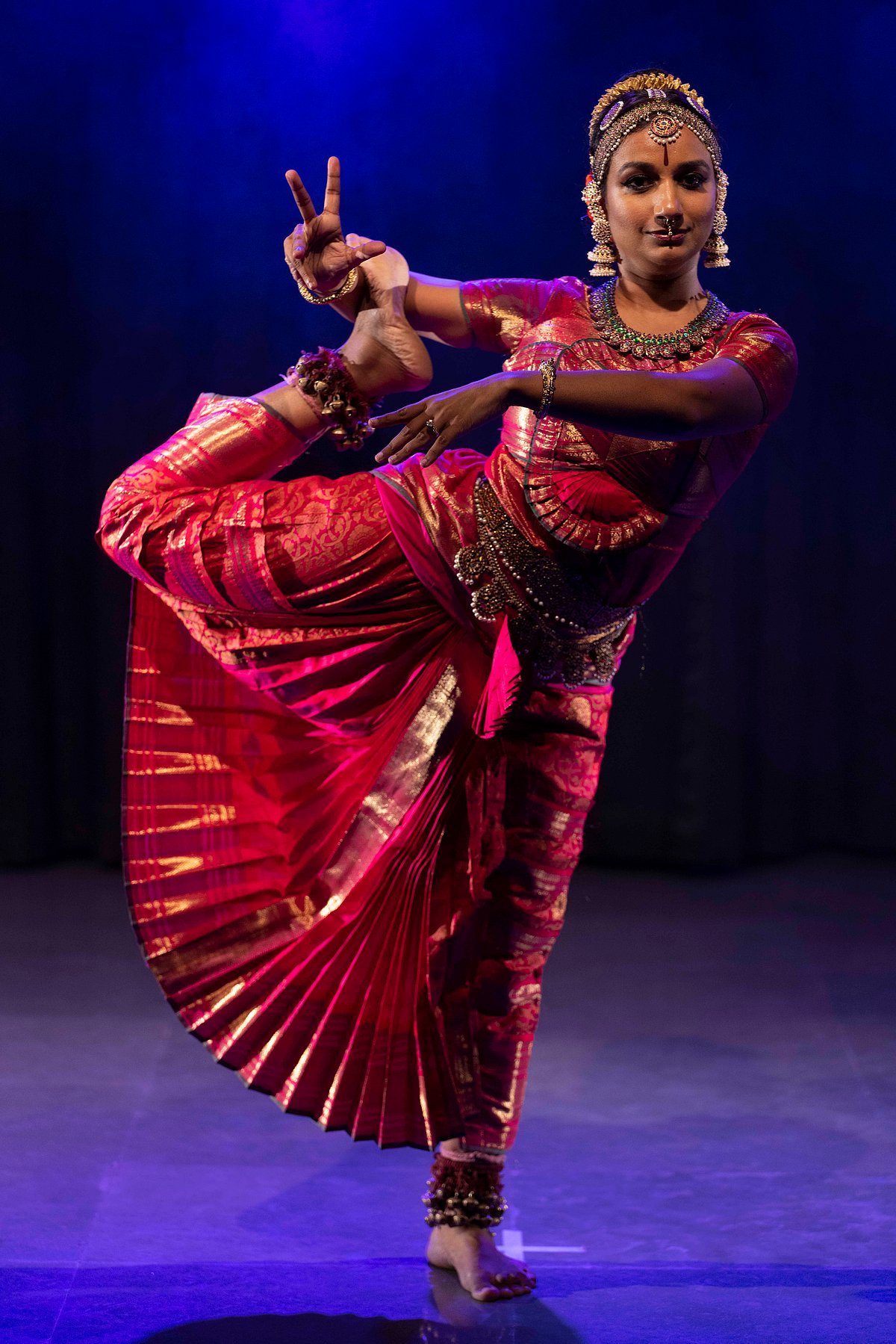
In the internet, many are learning dancing by watching online videos. How do you see this change?
Both physical and online mediums are coexisting now. Classical music and dance are best experienced live but online is a blessing for those who couldn’t learn the dance form for many reasons. It makes it easier for them to follow their dream that they couldn’t fulfill otherwise. Online mediums have connected people but I suggest whatever they are learning online follow it up with some physical classes.
Dancers often have a special bond with the creation, how do you share your feelings towards current social and political scenarios?
Dance is about communication. Kuchipudi dancers would travel from place to place to tell stories from Indian epics. They were trying to communicate moral values but in a more enjoyable manner. In my performance as well, I try to communicate the meaning of the story. For instance, when I perform Ramayana, I try to convey what Rama actually stands for, which is all about duty. I try to convey the message through my dance performances.
